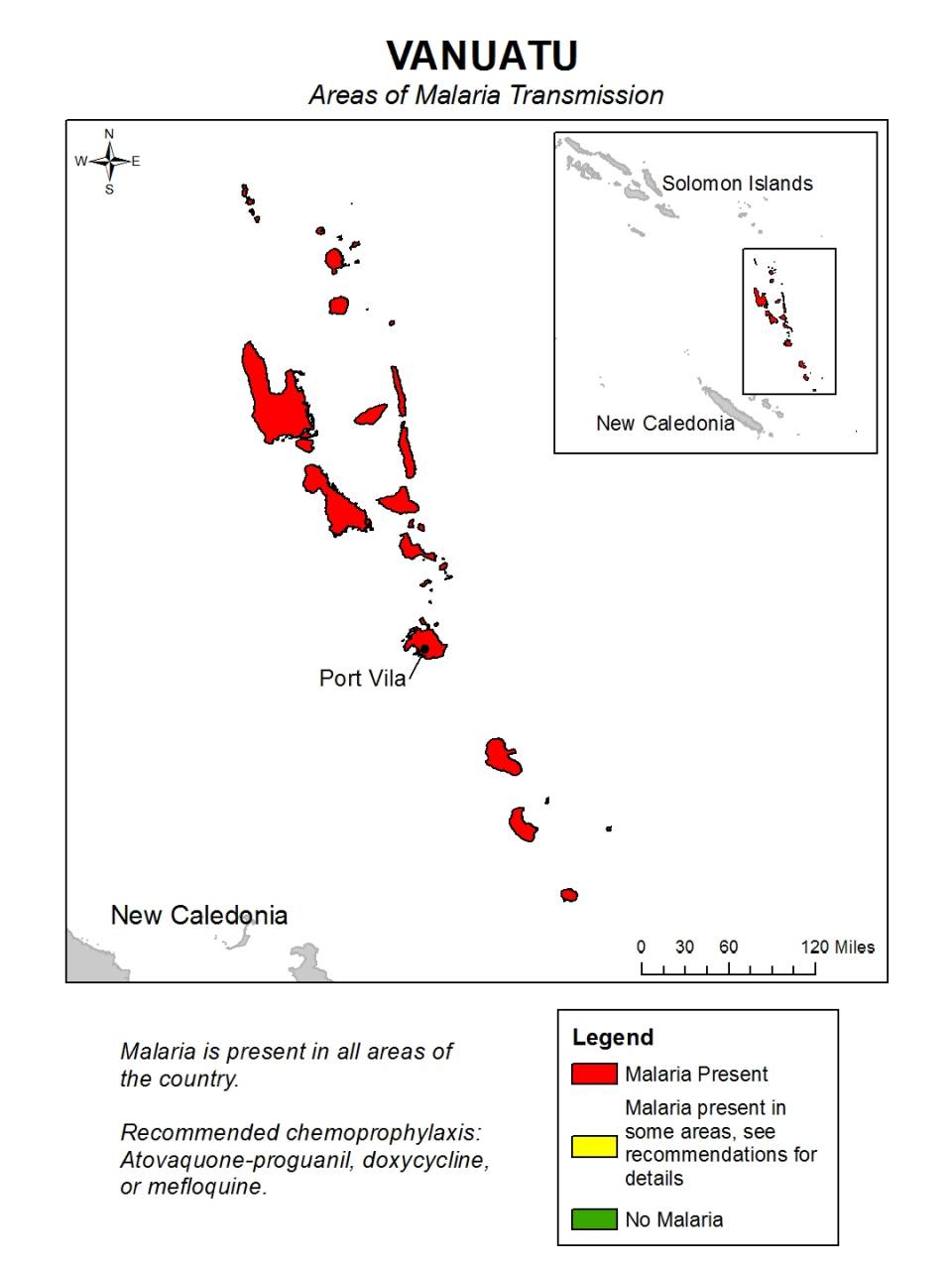Vanuatu: Travel Vaccines & Health Advice
These are some of the major health risks and vaccinations that you’ll need to consider for a trip to Vanuatu.
We stock most required vaccines on-site. You should ideally see us 4-6 weeks before your trip.
Recommended vaccinations:
Highly recommended. Hepatitis A is a viral disease that affects the liver. You can get hepatitis A through contaminated food or water in this country, regardless of where you are eating or staying.
Immunisation is the best protection against hepatitis A infection and is recommended for travel to this area. It involves either 2 doses of hepatitis A vaccine, or 3 doses of the hepatitis A and hepatitis B vaccines given as a combination.
Safe food and water practices are the basis of prevention, but vaccination is also recommended for travel to this area. Immunity post-vaccination lasts for 2-3 years.
Some travellers may require:
Anti-malaria medications
You should avoid mosquito bites to prevent malaria.
You may need to take prescription medicine before, during, and after your trip to prevent malaria, depending on your travel plans, such as where you are going, when you are traveling, and if you are spending a lot of time outdoors or sleeping outside. Effective options would include doxycycline, atovaquone/proguanil or mefloquine.
Malaria is present throughout the year in all areas of Vanuatu.

Routine vaccinations
Make sure you are up-to-date on routine vaccines before every trip, such as:
- measles-mumps-rubella (MMR) vaccine
- diphtheria-tetanus-pertussis vaccine
- varicella (chickenpox) vaccine
- influenza vaccine
Other health considerations for travellers to Vanuatu
Ciguatera fish poisoning
Ciguatera is a poisoning resulting from eating certain fish in particular regions in the Indian Ocean, Pacific Ocean, and the Caribbean. Mackerel caught around mid-October in Australia are a classic cause of this condition.
Lymphatic filariasis
Lymphatic filariasis or elephantiasis is a tropical disease caused by parasitic worms spread by infected mosquitoes. Although most cases are symptomless, the disease can occasionally cause severe swelling in the legs, arms and genitals.
Melioidosis
Melioidosis is an infectious disease caused by a bacterium (Burkholderia pseudomallei) which lives in soil and water. It is an important public health issue in parts of Vietnam and northern Australia.
In endemic areas, people (rice-paddy farmers in particular) are warned to avoid contact with soil, mud, and surface water where possible
Soil-transmitted helminths
Wearing enclosed footwear in undeveloped areas is important to prevent hookworm. Hookworms penetrate through intact skin such as walking with bare feet, and can cause severe gastrointestinal and skin infections.
Tuberculosis
Tuberculosis is a disease caused by infection with the bacteria Mycobacterium tuberculosis. Tuberculosis can damage a person’s lungs or other parts of the body and cause serious illness.
- Avoid exposure to people who have active tuberculosis.
- Only consume pasteurized milk products.
- Travellers at higher risk should be tested for tuberculosis upon their return home.
- There is a vaccine available which confers partial protection. Speak to your doctor to determine if this is recommended.
This information is intended as a guide only and is not to be used as a substitute for professional medical advice. Recommendations on vaccinations and medications require assessment on an individual basis, taking into account factors such as your medical history, itinerary, length of stay and style of travel.

